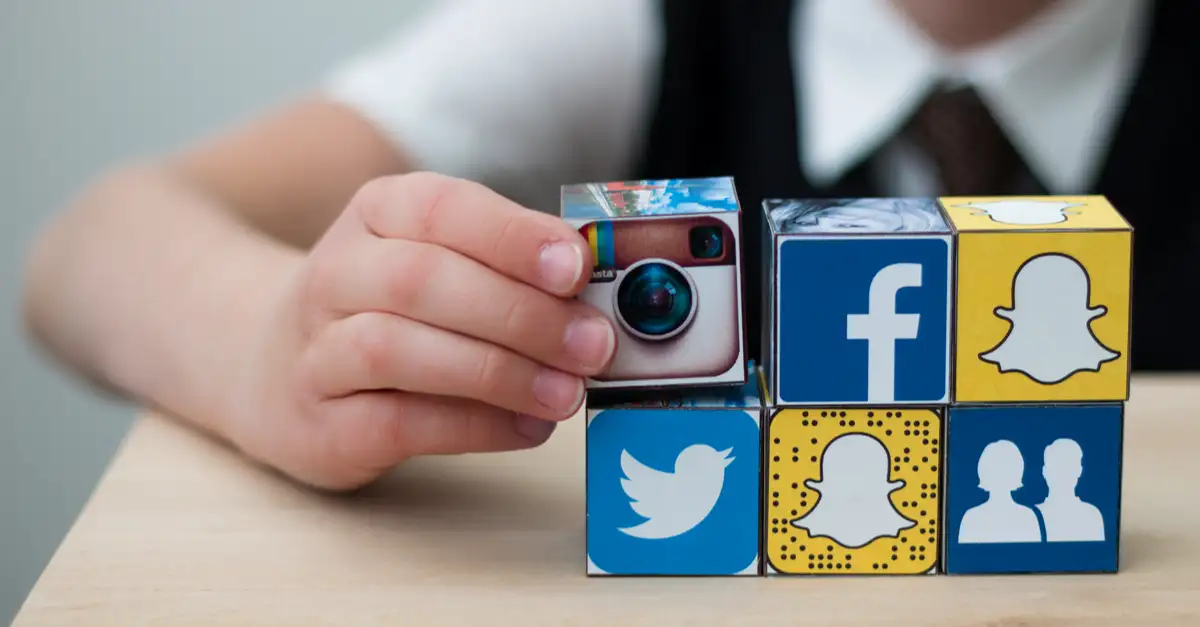As adults, we may view social media as a pleasant way to remain in touch with friends and family, many of whom we might otherwise have lost track of. For teenagers and pre-teens, social media can become much more: profile pages and daily updates may become a place where they are celebrated or embarrassed, leaving kids at the mercy of their online friends and foes. Likes, comments, and shares on a post become a form of money that youngsters use to determine their worth.
If all of your teen's pals were on a mission to raise each other up, share successes, and create opportunities, it might be a good thing. Unfortunately, this isn't always the case.
Your adolescent may come to the same conclusion.
Users (adults included) are in the habit of sharing the highlights of their life on
social media platforms such as Instagram, Snapchat, and Facebook. If aliens from another galaxy studied humanity through
social media, they would infer that everyone is wonderful and life is ideal: newborns smile all the time and never wake their parents up, parties and concerts are commonplace, and everyone exercises and eats their veggies.
Depending on your child's age and maturity, he may find it difficult to understand that what he sees on his newsfeed is not indicative of real life. People only upload photographs of themselves that make them seem their best, even if it means editing the images to make them appear smaller or more muscular, with a smoother complexion and whiter teeth.
It's easy for your teen to feel like she doesn't measure up when she's bombarded with photos like that (from people she knows, no less). Maybe she thinks she's less attractive or skilled, or that she doesn't have the same clothing, toys, or gadgets as everyone else. Teens have an amazing amount of exposure to this "ideal world" since they spend roughly nine hours a day online.
Cyberbullying
Teens' self-esteem is already harmed by constantly comparing themselves to photographs of others they consider to be more beautiful or brilliant, but it gets worse. Cyberbullying is a common occurrence on
social media, and it comes in a variety of forms:
• Ignoring someone's post, photo, or status and declining to like or remark on it.
• Making disparaging remarks about someone's appearance, interests, lifestyle, race, religion, or other characteristics.
• Direct texts that are nasty.
• Spreading false information or rumors about someone.
• Sharing someone's private or humiliating images or videos.
• Posting or soliciting information on someone by creating a fake profile or purporting to be someone else.
• Threatening to harm another person.
• Encouraging someone to take their own life.

Certain games, contests, and
social media trends, might potentially harm your teen's self-esteem. "Am I Pretty or Ugly?" is a good example. A few years ago, YouTube videos received a lot of media attention, and teenagers are still uploading them now.
Cyberbullying may be especially harmful to a kid or teenager since what is placed online is permanent. Bullying has long been linked to low self-esteem, which in turn can lead to behavioral disorders, health problems, poor academic performance, and even criminal activity.
The American Academy of Pediatrics, the Child Development Institute, and the United States Department of Health and Human Services give some suggestions for boosting your child's self-esteem:
- Developing High Self-Esteem in Your Teen
- Encourage their passions and assist them in developing skills: Being good at anything, regardless of what it is, boosts one's self-esteem.
- Allow your teen to pursue their passions in sports, art, music, woodworking, vehicles, martial arts, dancing, or anything else they like (even if it might change on a monthly basis). They're less likely to be influenced by someone who says, "You're not good at anything," since they realize it's a falsehood.
Praise Your Kid's Good Work: Be truthful, but don't be afraid to inform your teen when you observe him or her doing a good job. Take notice of their strong decision-making abilities, and encourage them to trust their own judgment rather than always seeking a second opinion from a buddy. When they attain a goal, rejoice alongside them.
Criticize in a constructive manner: You never know how much internet criticism your kid is subjected to, so be careful how you criticize. Avoid belittling or embarrassing your youngster by being constructive. Choose your battles: if he's wearing the same shirt for the third day in a row, it might not matter.
Positive Self-Talk and Confidence as a Role Model: Talk to yourself in the same way that you want your kids to talk to themselves. Allow no one to witness you mocking your own body, "punishing" yourself by jogging additional kilometers because you ate a piece of cake, comparing yourself to others, or berating yourself for failing to fulfill a goal or complete a task. When it's appropriate, speak up for yourself, and go for what you want in your own life.
Discuss What They See on the Internet: Remind them that no one on social media is posting about the mundane aspects of their lives. Encourage children to come to you if something they see on the internet upsets or scares them. Introduce kids to good social media role models, such as individuals you know and celebrities who volunteer and advocate for equality, confidence, and compassion.
Set Internet Guidelines: You may limit your teen's internet access and ban particular sites and applications by utilizing reliable parental controls on their mobile device. You may assist your youngster spend more time in the "real world" by taking one easy step.
Parents, more than anybody else, can boost their child's self-esteem. It isn't especially difficult to accomplish. In fact, most parents do it without recognizing that their words and actions have a significant influence on their child's or teenager's self-esteem. Hopefully, this will be enough to counteract the negative effects of social media on your child's self-esteem.
 Certain games, contests, and social media trends, might potentially harm your teen's self-esteem. "Am I Pretty or Ugly?" is a good example. A few years ago, YouTube videos received a lot of media attention, and teenagers are still uploading them now.
Cyberbullying may be especially harmful to a kid or teenager since what is placed online is permanent. Bullying has long been linked to low self-esteem, which in turn can lead to behavioral disorders, health problems, poor academic performance, and even criminal activity.
The American Academy of Pediatrics, the Child Development Institute, and the United States Department of Health and Human Services give some suggestions for boosting your child's self-esteem:
Certain games, contests, and social media trends, might potentially harm your teen's self-esteem. "Am I Pretty or Ugly?" is a good example. A few years ago, YouTube videos received a lot of media attention, and teenagers are still uploading them now.
Cyberbullying may be especially harmful to a kid or teenager since what is placed online is permanent. Bullying has long been linked to low self-esteem, which in turn can lead to behavioral disorders, health problems, poor academic performance, and even criminal activity.
The American Academy of Pediatrics, the Child Development Institute, and the United States Department of Health and Human Services give some suggestions for boosting your child's self-esteem:

